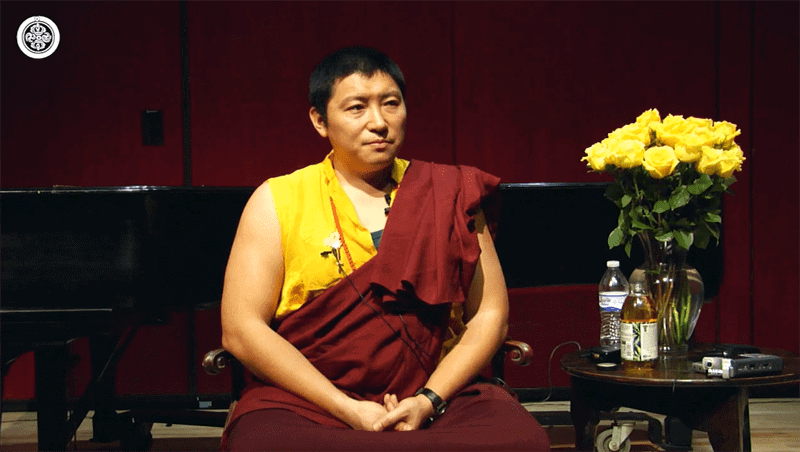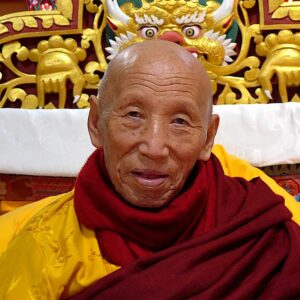Rhythm also needs the support of positive feelings toward others. In this third part of the “Rhythm of Happiness” talk, Phakchok Rinpoche suggests additional mental training. We need to learn how to be genuine and sincere. We start this by learning how to be sincere to ourselves. Rinpoche reminds us to begin again by alternating the first practices starting from creating space. Then we can begin to add technical analysis. We think about the five negative thoughts and the fingers of our hand, knowing that these five thoughts are an expression.
Arm as Example
An expression of what? The continuum of our mind that is judging. To help us think about this, we can use the example of our own arm. Rinpoche points to the forearm that is connected to the hand. This gives us a helpful picture of the connection. Judging and opinions are the producers of the emotions. “I like you,” or “I don’t like you,” are examples of judgment. And this judgment is always related to our egos.
Continuing with the example of the arm, Rinpoche points to the upper arm as our ego. So we can think about the rhythm of the flow between the shoulder to the forearm to the fingers. Picture ego to judgment to the five negative thoughts (or the “five poisons” in Buddhist terms).
Exercise on Kindness
Rinpoche then reminds us again: feel space, concentrate on the breath, and then create some more space. Now slowly examine your problems within that space. Reflect on your own emotions and think about where you can improve. Then very importantly, never forget the kindness of those who support us. In particular, we should remember our parents, our family, and our loved ones. Think of their kindness again and again. We can also think about how fortunate we are. From that rhythm of fortune, immediately we wish that all beings can experience happiness. This is very transformative. But we need to practice this on a daily basis. We need to make this a new rhythm in our lives.
Rinpoche reminds us not to get caught up in thinking too much about ourselves. This prevents us from falling into a cycle of depression or low self-esteem. He advises us to focus, instead, on the basic rhythm starting with creating space and slowly progressing to extending out happiness to others.
What about blind spots? Rinpoche says that we only see our blind spots when we interact with others. We can be very calm when we are alone and we sometimes think we have no blind spots. Sometimes we notice in our meditation, but often we do not.
Observation Without Judgment
We need to check ourselves carefully, but we should not judge ourselves. This is really very important! We have to repeat this instruction again and again. How do we know we are judging ourselves? We feel bad. So we need to train ourselves to catch that pattern. When we remind ourselves not to judge, we develop the skills to catch ourselves before we fall into self-criticism.










Responses
There is also a very wonderful meditation that Rinpoche teaches on kindness I received recently from Jesper. We have begun to use it in our group. It has four steps
1. Breathing in the essence
2. Thinking of the kindness of others.
3. Sending and taking happiness and suffering.
4 Feeeling self joy or self appreciation
Has anyone else practiced this? What do you think/ feel about it?
Maybe a short demonstration of the practice would be helpful.